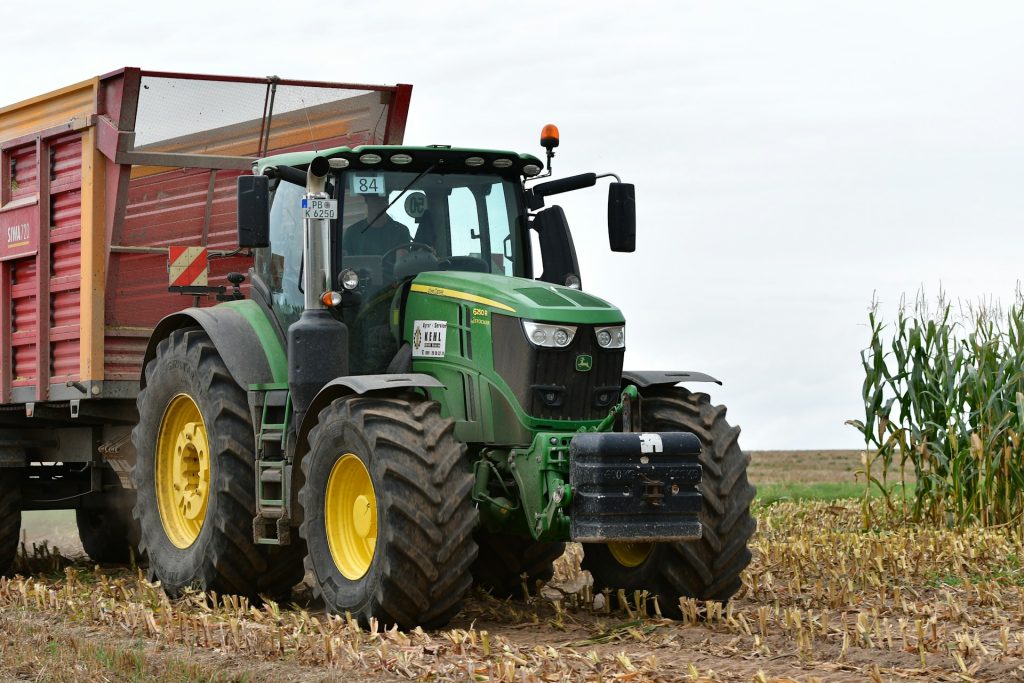Crop production has become a thriving industry, driven by innovations, science, and smart business strategies, making a career in it very rewarding, whether you have plenty of experience or consider yourself a farming novice. Modern farmers are turning rich soil into real wealth by combining traditional farming methods with cutting-edge technology.
This article highlights how a new generation of professionals is finding prosperity in everything from high-yield crops to agri-tech entrepreneurship.
\Whether you dream of managing a large-scale farm or building a business around sustainability, crop production offers a wide range of paths to financial growth and long-term success.
Continue reading to learn more about this lucrative career path and why it can be a great time for a career switch.
High-Earning Crop Production Careers
Agronomists
Often serving as a high-level consultant, the Agronomist advises farmers and large-scale agricultural operations on maximizing crop yields while maintaining soil health. This involves choosing the best seeds, developing custom fertilization plans, and implementing pest and disease control strategies.
Experienced or senior consultant agronomists can earn salaries upwards of $80,000 annually, especially those with advanced certifications like BASIS or FACTS. Even those who are starting out can earn good payments that will support a good lifestyle.
Soil Scientist
These professionals study the physical, chemical and biological composition of soil. They analyze samples to determine nutrient levels, acidity and structure to help them recommend conservation practices to prevent erosion and improve fertility of crops. Working for commercial consultancies or research firms often provides the highest pay, with senior roles reaching $90,000 or more.
To become a Soil Scientist, you need a degree in Soil Science or a related field like environmental science. A bachelor’s degree is the minimum, but many employers require or prefer a postgraduate qualification, such as a Master’s or PhD
Precision Agriculture Specialist
These specialists use GIS (Geographic Information Systems) and remote sensing to collect vast amounts of information on weather, soil moisture, and crop health across large fields. They then use data analytics to create prescriptions. This involves telling machinery exactly how much water or fertilizer to apply to specific parts of a field.
This extreme efficiency saves millions in resources, resulting in high salaries, often ranging from $70,000 to over $115,000 for managers and consultants. To become a Precision Agriculture Specialist, you need a bachelor’s degree in agriculture, agronomy, or engineering, combined with strong technical skills and practical experience.
Agricultural Engineer
Designing the systems and machinery that make precision farming possible is the role of an agricultural engineer. This includes developing smart irrigation systems, GPS-guided tractors, and new post-harvest technologies that optimize storage and processing, ensuring maximum product value.
Degrees in agricultural, environmental, mechanical or electrical engineering can help you to become an agricultural engineer. You can also pursue a degree apprenticeship. Entry-level salaries typically start around $33,000, while experienced engineers can earn up to $60,000.
Farm Manager
Farm manager duties go beyond planting to include business management, budgeting, sales negotiation, and equipment logistics. While they still have to get their hands dirty sometimes using tools like heavy duty hedge trimmers, they are mainly responsible for the profitability of the entire enterprise. Highly experienced Farm Managers, especially those overseeing specialised or large-scale production are among the highest earners in the sector, frequently making well over $70,000.
Common educational paths are a degree in agriculture or a related field, though an HND, HNC, or an apprenticeship. You can work your way up throughout the farming ranks to become a manager.
Agribusiness Operations Manager
Focused heavily on the business side, these managers oversee the supply chain, processing, distribution, and financial health of agricultural corporations. They are crucial to connecting the farm output to the global market, requiring both agricultural knowledge and strong business acumen. The most successful agricultural operations managers will ensure that their farmland can survive in the long term while keeping all employees satisfied in the process.
You’ll need to pursue a degree in agriculture or a related field, or gain experience through vocational training or on-the-job placements. The average annual salary in the U.S. is approximately $99,484, but this can range from around $41,000 to $77,500 for the majority of roles. Top earners have negotiated salaries over $108,500 in this role.
Final Thoughts
It seems as though those who are leveraging science and technology in the farming industry are creating wealth through efficiency and high-yield production. Whether your expertise lies in
soil science, programming smart farming equipment, or commanding the financial operations of a large estate, the career paths within crop production offer a financially rewarding opportunity.
You’ll need to get the right type of education and embrace the ways that agriculture and technology combine to successfully have a thriving career that contributes to global sustainability while guaranteeing your long-term success.



